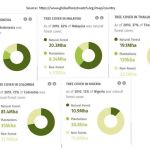In Defense of Wealth Creators: Why Globalization, Outsourcing – And Rich People – Are a Good Thing for Developed and Emerging Economies
Globalization creates efficiencies for everyone. Goods and services can be ordered, created and delivered between countries and economies quickly and at a reduced cost. This level of interdependence breaks down borders, and buyers can turn to the internet to find the exact item they need. Whether it comes from Australia or down the street, it makes no difference anymore, as global trade enables people around the world to participate and share in societal and economic advancements.
Businesses drive these advancements, and behind the existence of every global company is a successful entrepreneur or a highly talented professional CEO. Yet despite the prosperity and benefits these individuals and their organizations are generating, they’ve been the target of a growing chorus of criticism, based on the perception that their business activities are making a net negative impact on the global community. Whether these wealth creators run a startup or a large established corporation, their critics argue that they only bring wealth to their organization, or only to their country of origin, and leave others out in the cold.
This line of criticism often points to the growth of outsourcing and the concentration of wealth as evidence that our globalized, free market system is fundamentally flawed. But this is far from the truth. In fact, wealthy individuals and the global businesses they run benefit everyone, from the affluent countries where those companies are generally domiciled, to the emerging economies where they often manufacture their products. And these individuals’ contributions to society are often overlooked in discussions of their growing wealth.
The Under-Recognized Positive Impacts of Outsourcing
When businesses trade globally, cash moves both ways. For every foreign purchase there is an offsetting foreign payment. Take, for example, sportswear manufacturers like Lulu Lemon and Nike. These companies take advantage of less expensive labor where it exists across the globe. We might be appalled at the wages paid to workers in Bangladesh or Vietnam, but on closer inspection, it’s a fair exchange. These companies are creating jobs where none existed before, and the wages they pay, when considered in tandem with the local cost of living, are actually above average.
In Bangladesh, the average wage in the factory and manufacturing sector is US $205 per month. Although that sounds limiting, this includes housing, transport and other benefits – and importantly, this salary goes a lot further than it would in the U.S., where the cost of living is 6.1 times more expensive than it is in Bangladesh. According to the World Bank, the international poverty line is $1.90 per day, meaning a wage of $205 per month is roughly 3.5 times the amount required to move out of poverty. In a family unit with multiple workers, this amount not only enables them to escape poverty, in many cases it allows them to establish a middle-class lifestyle.
And it’s not just assembly line manufacturing jobs that wealth creators in affluent countries like the U.S. are creating around the globe via outsourcing. They’re also generating employment opportunities in high-end professional services such as computer programming, aerospace engineering, tax accounting, medical research and back-office support. These jobs are broadening the professional opportunities available to countless knowledge workers worldwide – and they’re providing these workers with incomes that had once been far out of their reach.
Other core societal benefits abound from moving capital to less expensive labor markets. To take one key example, job opportunities give women economic independence where it didn’t exist before. Women make up slightly more than 50% of the world’s population – except in countries like China and India, where gender-based abortion and infanticide influence the ratio. Despite the fairly even population balance, men continue to lead in global labor force participation, while women do the majority of unpaid work. Outsourcing work to emerging markets has been changing this imbalance. For instance in India, which currently leads the world in information technology and business process outsourcing (BPO), women now account for around 50% of the BPO workforce in urban areas. And the trends are similar in other emerging markets such as the Philippines, China, Costa Rica and many countries in the Indo-Pacific region.
As these trends illustrate, as for-profit businesses are created and expanded in developed regions like North America, emerging economies benefit, directly or indirectly, and their standard of living rises. But developed economies benefit too: For instance, as lower-end manufacturing and BPO jobs are outsourced from the U.S., the outsourcing increases company profitability and resources. This means that these companies can offer more secure employment to their U.S. employees, who can focus on roles with higher value-add to the company. This dynamic was very evident when banks started implementing ATMs. At the time, there were concerns that this would increase unemployment, since banks would not need as many staff members, as the ATMs offered many of the primary functions of a teller. However, the opposite happened: By automating the basic teller function, banks were able to upskill their employees to perform more complex tasks, while operating their branches at lower costs – which enabled them to open more branches. Ultimately, this resulted in more banking jobs for people – including tellers – who now perform higher-end jobs. Outsourcing lower-end tasks has the same effect in other industries.
Businesses can’t outsource a part of their business or supply chain without also outsourcing a part of their profit. This dynamic can be seen in India, Mexico and China, which have been the top beneficiaries of profit outsourcing from the U.S., and the results are staggering. For example, the U.S. greatly contributed to China’s economic miracle. Over the past 30 years the U.S. has increased cash for goods and services flowing to China by 2,563%, from roughly $19 billion in 1991 to over $506 billion in 2021. In the same period China has moved from the world’s 11th largest economy to the second largest, surpassing Japan, France, Germany and the United Kingdom.
As their standards of living rise, emerging markets themselves start to invest their newfound wealth in still lower cost centers, creating another wave of the wealth creation process. For instance, as the GDP per capita in India rose 335% — from $443 to $1,927 — between 2000 and 2020, Indian BPO companies have started re-outsourcing their work to the Philippines, employing more than 100,000 Filipinos.
A Key Indirect Benefit of Wealth Creators
But there are additional, indirect benefits generated by wealth creators in developed economies like the U.S., which impact both these countries and the emerging markets where they do business. The most significant of these benefits is the fact that the millions of new jobs generated by wealth creators also result in millions of new taxpayers in countries where insufficient tax revenue collection has long been an obstacle to development. New tax revenue provides funding for governments to use and redistribute. As tax revenues bolster a country’s treasury, its government has more money to invest in infrastructure and other social services.
In summary, wealth creators and their businesses in developed economies provide jobs, and improve quality of life, both in their home countries and in the emerging markets where they operate. Thanks in part to this distributed prosperity, many countries are making real strides in emerging from the negative impacts of poverty, as seen in the worldwide increase in average lifespan, which is up from 64.2 years in 1991 to 72.98 years today. Directly or indirectly, wealth creators advance global prosperity, making everyone a bit richer, a bit healthier, and far more connected to new opportunities for wealth creation of their own.
Derek Bullen is Founder and CEO of S.i. Systems, and author of In Defence of Wealth: A Modest Rebuttal to the Charge the Rich Are Bad for Society (Barlow Books, 2022).
Photo credit: Solidarity Center
- Categories
- Uncategorized



